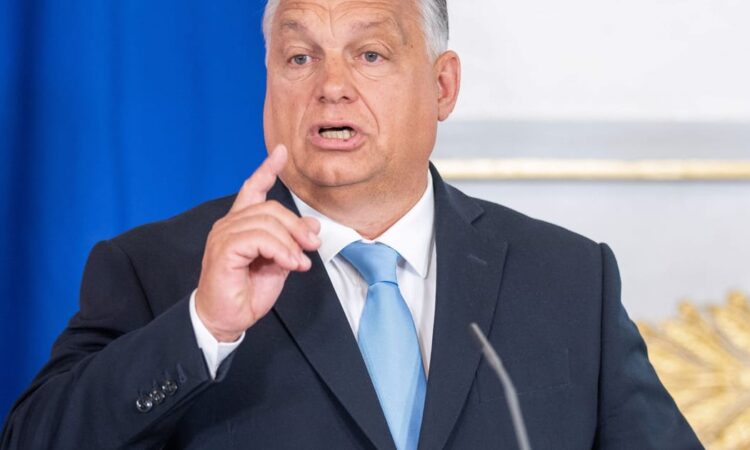
The European Commission is preparing to unfreeze around €13 billion in funds for Hungary to try to avoid Prime Minister Viktor Orbán vetoing EU aid for Ukraine, in a move likely to draw criticism from the European Parliament.
The Commission needs the unanimous backing of the bloc’s 27 countries for an update to the EU’s long-term budget, which includes a €50 billion funding pot for Ukraine.
Current EU aid for Kyiv runs out in December, and agreement by the 27 is all the more urgent given U.S. lawmakers’ decision to temporarily remove continued military funding and because of the election of Robert Fico in Slovakia, a pro-Russian critic of Europe’s Ukraine policy.
Orbán has already said that Hungary won’t support further funding to Ukraine, citing concerns with Hungarian minorities in the country, demanding that a 2017 law on linguistic minorities be changed.
The Commission hopes that releasing a large part of Hungary’s EU funds, which have been frozen since late last year over concerns about the country’s adherence to democratic standards, will convince Orbán not to veto Ukraine’s aid, officials in Brussels and Budapest familiar with the discussions, granted anonymity to discuss confidential talks, told POLITICO.
Earlier this year Hungary passed measures meant to strengthen judicial independence, a requirement set by the Commission to release the largest share of the country’s cohesion funds, amounting to €22 billion in total.
Last week the Commission sent a letter to Budapest asking for further clarifications. Should Hungarian reforms be considered satisfactory, Budapest could claim access to around €13 billion euros in EU cohesion funds. A decision is expected later this month or by early November.
The remainder of Hungary’s financing remains frozen for various reasons: €6.3 billion is blocked under a mechanism allowing the EU to freeze funds at risk of graft while another €2.5 billion is being held up over controversies concerning Budapest’s treatment of asylum seekers, a “child protection law” widely recognized as being homophobic, and the academic independence of Hungarian universities.
Separately, Hungary is also entitled to €10.4 billion of grants and loans under the EU’s post-pandemic recovery fund but to access those funds it needs to fulfill 27 conditions including anti-corruption efforts.






